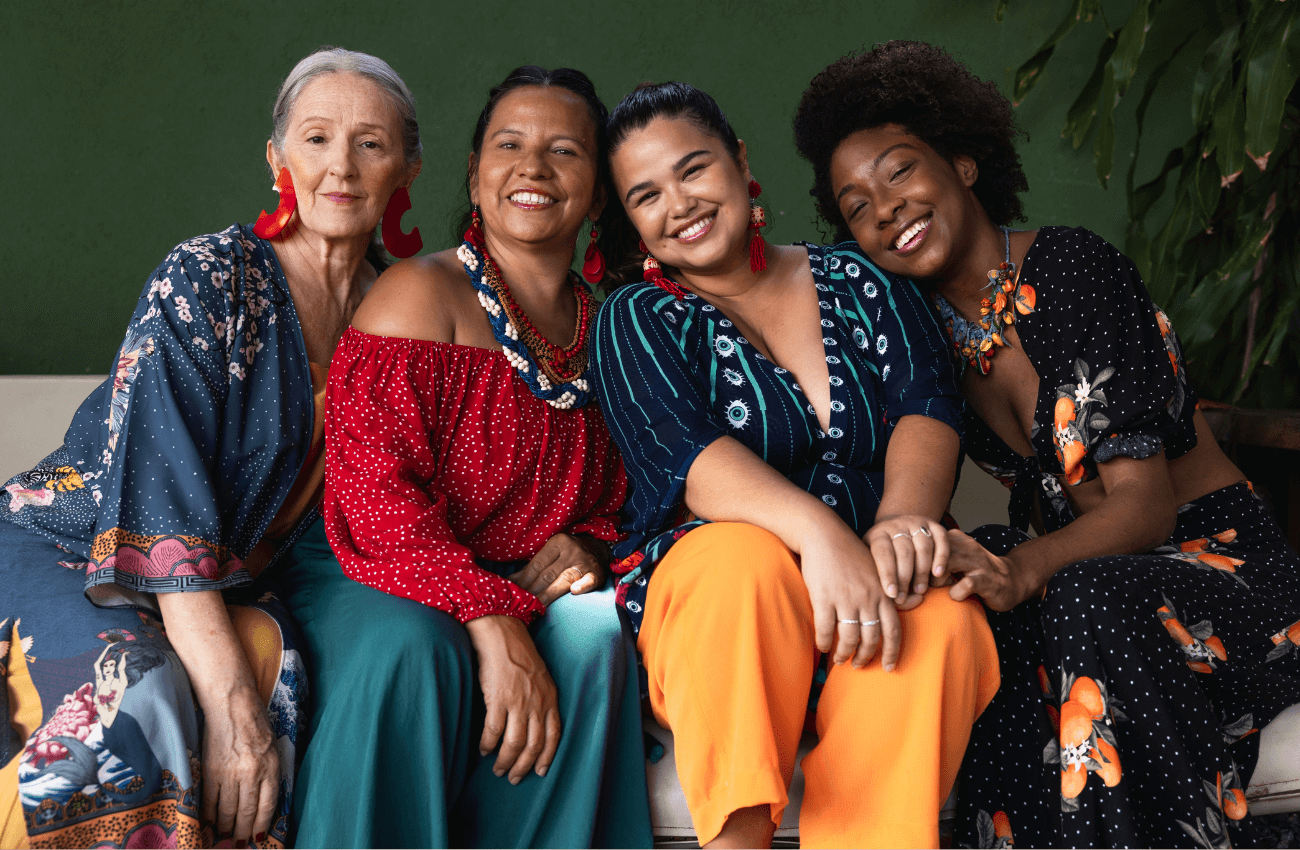As women go through the natural process of menopause, societies and different cultures around the world have developed unique traditions to address this significant life change. In some cultures, menopause is seen as a time of celebration and empowerment, while in others it is surrounded by silence and stigma. In the article, we navigate through the various global traditions surrounding the change and menopause in different cultures around the world.
From the vibrant celebrations of the Red Tent gatherings in the United States to the ancient rituals surrounding menopause in traditional Chinese medicine, The Women’s Journal has uncovered the rich tapestry of beliefs and practices that surround this transition. By understanding these varied traditions, we gain valuable insights into how menopause is viewed differently around the world and gain a deeper appreciation for the global diversity of menopause experiences and the wisdom passed down through generations.
Understanding menopause and its impact on women
Menopause is a natural biological process marking the end of a woman’s reproductive years. It typically occurs between the ages of 45 and 55 and is characterised by the cessation of menstruation. But the age of onset of the perimenopause and menopause varies significantly across ethnicities. While the average age of onset is 51 in Caucasian women, this is 46 in Indian women; there’s also a rural and urban division with studies showing that the prevalence of premature menopause in Indian women is higher (between 2 and 4%) than that for women in Western countries.
This transition is accompanied by a variety of physical and emotional changes due to hormonal fluctuations, including hot flashes, mood swings, and sleep disturbances. The impact of menopause varies from woman to woman, and the cultural context in which it occurs can greatly influence how women experience and navigate this change.
“Every menopause experience is unique – influenced by our age, family history, lifestyle and medical history,” says Norma Goldman, Founder and Director of The Menopause Exchange. “It is also influenced by how we view this time of life on a much broader level. Our cultural background and society values may contribute to whether we have an overall negative or positive journey through this time of life.”

In many cultures, menopause is seen as a significant milestone in a woman’s life. It is often associated with wisdom, maturity, and the attainment of a new level of spiritual and emotional growth. However, in some societies, menopause is shrouded in secrecy and silence, creating a sense of shame and isolation for women. Understanding the cultural nuances surrounding menopause is crucial to providing appropriate support and empowerment for women during this transformative phase.
In Japan, the menopause is associated with years of renewal and regeneration. But in the Western world, this phase of life is often linked to a loss of youth and fertility. Some African cultures view the menopause positively, while others view it negatively.
Menopause Traditions in Eastern Cultures
Eastern cultures have a rich array of menopause traditions that emphasise the importance of balance and harmony in navigating this transition. In traditional Chinese medicine, menopause is viewed as a natural part of a woman’s life cycle and is associated with the concept of yin and yang. Yin represents the cooling, nourishing, and receptive qualities, while yang represents the active, warming, and outwardly focused qualities. During menopause, there is a shift from a predominantly yin state to a more balanced state of yin and yang.
To maintain this balance, Chinese women often turn to acupuncture, herbal remedies, and dietary adjustments to alleviate menopausal symptoms. They also engage in practices such as qigong and tai chi to promote the flow of energy and maintain overall well-being. In Japan, women celebrate menopause through the tradition of “kanreki,” which marks the completion of a 60-year cycle of life. Kanreki is seen as a time of rebirth and renewal, and women often receive gifts and participate in special ceremonies to commemorate this milestone.
Menopause Traditions in Western cultures
In Western cultures, menopause traditions vary greatly depending on individual beliefs and cultural backgrounds. In some communities, menopause is celebrated as a rite of passage and a time of empowerment. One such example is the Red Tent movement, which originated in the United States. Inspired by the book “The Red Tent” by Anita Diamant, Red Tent gatherings are women-only spaces where women gather to share their experiences, support each other, and honour the transitions in their lives, including menopause.
These gatherings provide a safe and nurturing environment for women to discuss their menopausal symptoms, seek advice, and gain a sense of community. In addition to the Red Tent movement, Western cultures also embrace various holistic approaches to menopause, such as yoga, meditation, and mindfulness practices. These practices promote self-care, stress reduction, and overall well-being during the menopausal journey.
Menopause Traditions in African cultures
African cultures have a rich tapestry of menopause traditions that reflect the deep respect and reverence for women’s wisdom and experience. In many African societies, menopause is viewed as a time of transformation and spiritual awakening. Women who reach menopause are often regarded as wise elders and are honored for their contributions to their communities.
In some African tribes, menopause is marked by elaborate ceremonies and rituals. For example, in the Maasai tribe of Kenya and Tanzania, women who reach menopause are celebrated through a ceremony called “Emorata.” During this ceremony, women dress in their finest traditional attire and gather to dance, sing, and share stories. The Emorata ceremony not only celebrates the woman’s transition into a new stage of life but also serves as a way to pass on cultural knowledge and wisdom to younger generations.
Menopause Traditions in Indigenous Cultures
Indigenous cultures around the world have unique menopause traditions that reflect their deep connection to the land, spirituality, and community. For example, among the Native American tribes, menopause is seen as a powerful spiritual transformation and is often referred to as the “wise woman” phase. Native American women who reach menopause are honored for their wisdom and are considered leaders and teachers within their communities.
In some tribes, menopausal women participate in sweat lodge ceremonies, where they purify their bodies and spirits through sweat and prayer. These ceremonies not only provide physical and emotional healing but also serve as a way to connect with ancestors and seek guidance for the next phase of life. The traditions and rituals of Indigenous cultures provide a strong sense of belonging and support for women as they navigate the menopausal journey.
Common themes and differences in menopause traditions across cultures
While menopause traditions vary across cultures, there are common themes that emerge. Many traditions emphasise the importance of community support and the sharing of wisdom between generations. They recognise menopause as a natural part of a woman’s life and celebrate the wisdom and experience that comes with it.
However, there are also differences in how menopause is viewed and experienced. In some cultures, menopause is seen as a time of celebration and empowerment, while in others it is surrounded by silence and stigma. These differences highlight the need for cultural sensitivity and understanding when providing support for women going through menopause.
The role of community support during the menopause transition
Community support plays a vital role in helping women navigate the menopause transition. In cultures where menopause is openly discussed and celebrated, women have access to a network of support and resources. They can freely share their experiences, seek advice, and find comfort in knowing they are not alone. This sense of community can help alleviate feelings of isolation and empower women to embrace the transformative journey of menopause.
However, in cultures where menopause is surrounded by silence and stigma, women may struggle to find the support they need. It is important for communities to create safe spaces where women can openly discuss their menopausal experiences and access the resources and information necessary to navigate this transition with confidence and empowerment.
Exploring alternative treatments and remedies for menopause symptoms
In addition to cultural traditions, many women explore alternative treatments and remedies to alleviate menopausal symptoms. These treatments range from herbal supplements to lifestyle changes and can be effective in managing symptoms such as hot flashes, mood swings, and sleep disturbances.
Some popular alternative treatments include phytoestrogens, which are plant-based compounds that mimic the effects of estrogen in the body, and acupuncture, which can help regulate hormonal imbalances and reduce symptoms. Other lifestyle changes, such as adopting a healthy diet, regular exercise, and stress reduction techniques, can also have a positive impact on menopausal symptoms.
It is important for women to consult with healthcare professionals and explore the available options to find what works best for them. Each woman’s experience of menopause is unique, and finding the right combination of treatments and remedies can greatly improve quality of life during this transition.
Empowering women through education and awareness about menopause
Education and awareness about menopause are crucial in empowering women to navigate this transition with confidence and grace. By providing accurate information about menopause, its symptoms, and available treatments, women can make informed decisions about their health and well-being.
Healthcare professionals, community organisations, and online resources play a key role in disseminating this information and promoting menopause awareness. Workshops, seminars, and support groups can provide women with the knowledge and tools they need to navigate menopause and advocate for their own health.
It is important for us to break the silence and stigma surrounding menopause. By openly discussing menopause and sharing personal experiences, women can create a supportive environment where they can seek and provide support.
Speaking exclusively to the Women’s Journal, Founder of The Menopause Exchange, Norma Goldman said: “It is important to obtain well-researched, impartial and practical information on all aspects of the perimenopause and perimenopause.
“The Menopause Exchange website provides women with this information and in The Menopause Exchange quarterly newsletter, which is emailed to them for free. Menopausal symptoms include physical, emotional, vaginal, and urinary ones. There are many ways to cope, including self-help lifestyle tips, health promotion advice, hormone replacement therapy, non-hormonal treatments prescribed for sweats and flushes, complementary therapies, and nutrition.
“When it comes to HRT, it is important to learn about its types, forms, benefits, risks, how to decide whether to use it, as well as which options are most suitable for the individual. There are many ways to find this. These include in the Menopause Exchange newsletter, in our workplace presentations on menopause, and in webinars we organise for women going through menopause.”
If you’d like to receive free impartial, practical information on the menopause, visit: www.menopause-exchange.co.uk to sign up for their newsletter.
Embracing diversity and celebrating women’s experiences during menopause
Menopause is a universal experience that transcends cultural boundaries. By exploring menopause traditions in different cultures, we gain a deeper appreciation for the global diversity of women’s experiences during this transformative stage of life.
From the vibrant celebrations in Western cultures to the ancient rituals in Eastern, African, and Indigenous cultures, menopause is honoured and navigated in unique ways. These traditions provide women with a sense of belonging, support, and empowerment as they embrace the wisdom and resilience that come with menopause.
As we navigate the change, let us celebrate the power and resilience of women. Let us embrace the transformative journey of menopause and create a world where women are supported, educated, and empowered to navigate this transition with grace and confidence. Together, we can break the silence and stigma surrounding menopause and celebrate the diversity of women’s experiences across cultures.




